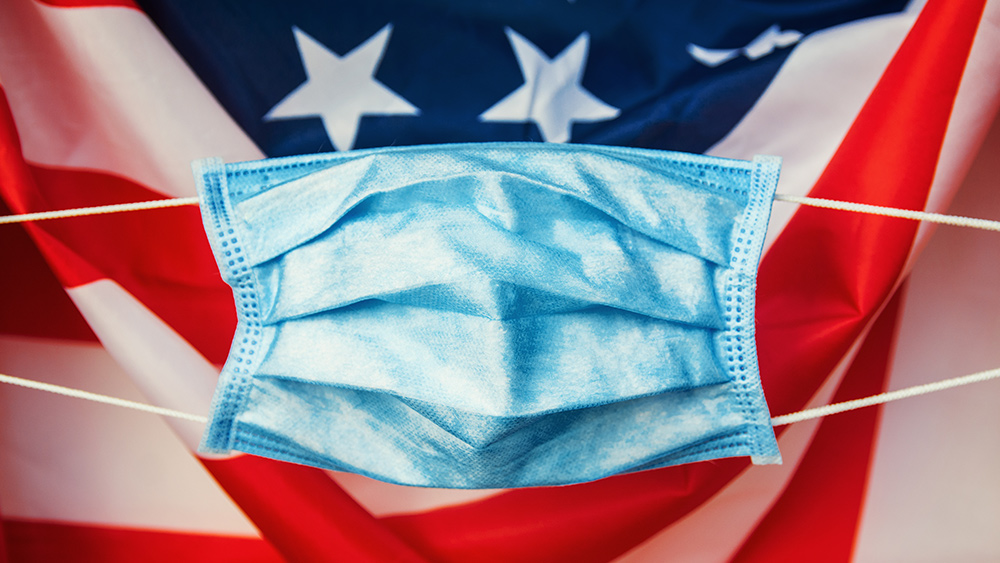9 more Australians report blood clots after receiving AstraZeneca vaccine
06/07/2021 / By Ramon Tomey

Australian authorities said nine more people developed blood clots after getting the AstraZeneca coronavirus (COVID-19) vaccine. The nine new cases brought the total number of patients who experienced the condition to 27. Australia’s Therapeutic Goods Administration (TGA) announced the new cases as the country’s mass vaccination program faces scrutiny.
New South Wales (NSW) recorded two cases — a 60-year-old woman and an 82-year-old woman. Two cases also came from Western Australia – a 72-year-old man and a 51-year-old woman. Queensland reported a 63-year-old man as the latest victim of the adverse reaction, while the state of Victoria confirmed that a 73-year-old woman there developed blood clots.
Three cases from the week prior completed the nine cases of blood clots the TGA confirmed. An 85-year-old woman from NSW and two cases from Victoria – a 62-year-old man and a 76-year-old woman – constituted the earlier blood clot reports. The TGA said that out of the 27 total patients who suffered post-vaccination blood clots, nine patients remain confined, and four require outpatient treatment.
About 3.8 million Australians have received at least one dose of either the Pfizer/BioNTech or the AstraZeneca vaccine, the only two approved vaccine candidates in the country so far. The Pfizer/BioNTech vaccine received provisional approval in January of this year, while AstraZeneca received provisional approval the following month. Only Australians aged 50 and above are allowed to get the AstraZeneca vaccine. Meanwhile, most patients who suffered from the post-vaccination blood clots were over 60 years old.
The TGA said: “We continue to receive reports of side effects [linked] to the AstraZeneca [COVID-19] vaccine as it becomes more widely available in Australia. The reports are generally consistent with what is being observed internationally.” According to the Australian regulator, serious blood clots with a low blood platelet count is “triggered by the immune system’s response to the AstraZeneca vaccine” and “different from other clotting conditions.” The agency nevertheless reassured that it and other regulators worldwide “continue to monitor and investigate this issue.”
AstraZeneca’s serious adverse reaction threw a monkey wrench into Australia’s vaccination program
Australia’s COVID-19 vaccination program hit a roadblock in April after a 48-year-old woman died after being inoculated with the AstraZeneca vaccine. The woman was a resident of NSW’s Lake Macquarie area. The British-made vaccine comprised a huge percentage of the Land Down Under’s vaccination program – but the reports of blood clots have undermined the country’s endeavor.
Canberra has ordered an additional 20 million doses of the Pfizer/BioNTech vaccine, but the earliest time they are expected to arrive is October of this year. The country also ordered a few Moderna doses also set to arrive later in the year. (Related: MEDICAL FASCISM: Australian Prime Minister says everyone will have to get vaccinated for coronavirus, whether they like it or not.)
Australian Prime Minister Scott Morrison has been criticized for the slow pace of vaccinations in the country. His critics included Victoria Deputy Premier James Merlino, who slammed Morrison’s government during a May 27 press conference in Melbourne. “This nation’s vaccine rollout has been slower than we have hoped. That is a fact. [If] more people were vaccinated, we might be facing a very different set of circumstances than we are today,” Merlino said.
Meanwhile, the state of Queensland announced it will not offer the AstraZeneca vaccine candidate for COVID-19 inoculations when it establishes vaccine hubs later in the year. The state’s Premier Annastacia Palaszczuk said Queensland was planning to set up mass vaccination hubs near the end of 2021. However, she noted that the state will wait for more vaccine doses to arrive before doing so.
“Queensland is a big state, [and] it is so decentralized. [So] much planning is happening at the moment for that final quarter of the year. [When] we have more supply [of] Pfizer [and] Moderna, [vaccination] is going to ramp up – and I know that Queenslanders are going to go out there in droves when we have all that supply ready,” Palaszczuk said. (Related: Queensland pulls AstraZeneca vaccine following more cases of blood clots.)
Federal Deputy Chief Medical Officer Michael Kidd acknowledged the blood clots and low platelet count associated with the AstraZeneca vaccine. However, he stressed that the chances of these adverse reactions occurring are “very small.”
Kidd also warned of possible headaches as a side effect of the AstraZeneca vaccine. “People should be particularly alert to severe persistent headaches occurring four to 20 days after vaccination. These are different [from] the usual pattern of headaches,” he said. The deputy chief medical officer advised against using over-the-counter painkillers for them.
Visit VaccineDamage.news to read more articles about the AstraZeneca COVID-19 vaccine and its adverse effects.
Sources include:
Tagged Under: adverse reactions, AstraZeneca, Australia, Big Pharma, Blood clots, coronavirus vaccine, covid-19 pandemic, elderly citizens, Therapeutic Goods Administration, vaccine rollout, vaccine wars, vaccines, Wuhan coronavirus
RECENT NEWS & ARTICLES
COPYRIGHT © 2017 BIG PHARMA NEWS





















